City Introduction
Beijing, the capital of China, is a city where ancient history and modern innovation coexist in perfect harmony. With over 3,000 years of history, Beijing has served as the capital of multiple dynasties and remains the political, cultural, and educational center of China.
The city is home to some of China's most iconic landmarks, including the Great Wall, the Forbidden City, and the Temple of Heaven. These UNESCO World Heritage Sites showcase the architectural brilliance and cultural sophistication of ancient China, while modern developments like the Olympic Park and 798 Art District demonstrate Beijing's embrace of contemporary culture and innovation.
Beijing's rich cultural heritage is reflected in its traditional hutongs, ancient temples, and imperial gardens. The city's layout follows traditional Chinese principles of feng shui and cosmic order, with the Forbidden City at its center and major landmarks arranged according to ancient astronomical principles.
Today, Beijing is a vibrant metropolis that seamlessly blends tradition with modernity. From the historic alleyways of the hutongs to the gleaming skyscrapers of the Central Business District, Beijing offers visitors a unique glimpse into both China's glorious past and its dynamic present.
This three-day guide will introduce you to Beijing's most essential experiences, from exploring imperial palaces and walking the Great Wall to experiencing local life in traditional neighborhoods and discovering the city's contemporary art scene.
3-Day Day Itinerary Overview
Day 1
Imperial Beijing - Heart of the Empire
The first day focuses on Beijing's imperial heritage, visiting the most important historical sites that showcase China's imperial past and architectural grandeur.
Day 2
Great Wall and Imperial Gardens
The second day combines one of China's most iconic landmarks with the beauty of imperial gardens, showcasing both the country's defensive architecture and its appreciation for natural beauty.
Day 3
Traditional and Modern Beijing
The third day offers a contrast between traditional Beijing life in the hutongs and the city's modern artistic and commercial developments.
Detailed Itinerary
Day 1: Imperial Beijing - Heart of the Empire
The first day focuses on Beijing's imperial heritage, visiting the most important historical sites that showcase China's imperial past and architectural grandeur.
08:30-11:30
Forbidden City Tour
Start early to avoid crowds at the Forbidden City. Explore the main halls, imperial gardens, and learn about the lives of Chinese emperors. Don't miss the Treasure Gallery (additional fee).
11:30-12:30
Lunch Break
Enjoy lunch at a restaurant near the Forbidden City, trying Beijing specialties like Peking duck or jiaozi (dumplings).
12:30-13:30
Tiananmen Square Visit
Walk through Tiananmen Square, the world's largest public square. Take photos of the Monument to the People's Heroes and the Great Hall of the People.
13:30-14:00
Transportation
Take the subway or taxi to the Temple of Heaven (about 20 minutes)
14:00-16:00
Temple of Heaven Exploration
Visit the Temple of Heaven complex, including the Hall of Prayer for Good Harvests and the Circular Mound Altar. Watch locals practicing tai chi and other activities in the park.
16:00-18:00
Evening Activities
Return to the city center for dinner and optional evening activities. Consider watching a traditional Chinese opera or acrobatic show.
Day 2: Great Wall and Imperial Gardens
The second day combines one of China's most iconic landmarks with the beauty of imperial gardens, showcasing both the country's defensive architecture and its appreciation for natural beauty.
07:00-08:30
Transportation to Great Wall
Take a tour bus or private car to Mutianyu Great Wall (about 1.5 hours from Beijing). Leave early to avoid crowds and enjoy cooler weather.
08:30-12:30
Great Wall Hiking
Take the cable car up to the wall and hike along this magnificent section. Visit several watchtowers and enjoy spectacular mountain views. Take the toboggan ride down for a fun experience.
12:30-13:30
Lunch
Enjoy lunch at a local restaurant near the Great Wall, trying regional specialties.
13:30-15:00
Return to Beijing
Travel back to Beijing and head to the Summer Palace.
15:00-18:00
Summer Palace Visit
Explore the Summer Palace, including the Long Corridor, Marble Boat, and Kunming Lake. Take a boat ride on the lake if time permits.
18:00-20:00
Dinner and Relaxation
Have dinner near the Summer Palace or return to the city center. Consider trying hot pot or other Beijing specialties.
Day 3: Traditional and Modern Beijing
The third day offers a contrast between traditional Beijing life in the hutongs and the city's modern artistic and commercial developments.
09:00-11:00
Hutong Tour
Explore Beijing's traditional alleyways by rickshaw or on foot. Visit a traditional courtyard home, learn about local customs, and experience authentic Beijing life.
11:00-12:30
Lama Temple Visit
Visit the Lama Temple, the largest Tibetan Buddhist temple outside Tibet. Admire the giant Buddha statue and the peaceful atmosphere.
12:30-13:30
Lunch
Have lunch at a local restaurant, trying vegetarian options or traditional Beijing cuisine.
13:30-15:30
798 Art District
Explore the contemporary art scene at 798 Art District. Visit galleries, see street art, and experience Beijing's modern creative culture.
15:30-16:00
Transportation
Take the subway or taxi to Wangfujing Street (about 30 minutes)
16:00-18:00
Wangfujing Shopping and Snacks
Shop for souvenirs and try various street foods at Wangfujing's famous snack street. Experience the bustling commercial atmosphere of modern Beijing.
18:00-20:00
Farewell Dinner
Enjoy your final dinner in Beijing, perhaps trying Peking duck at a famous restaurant like Quanjude or Da Dong.
Attraction Details
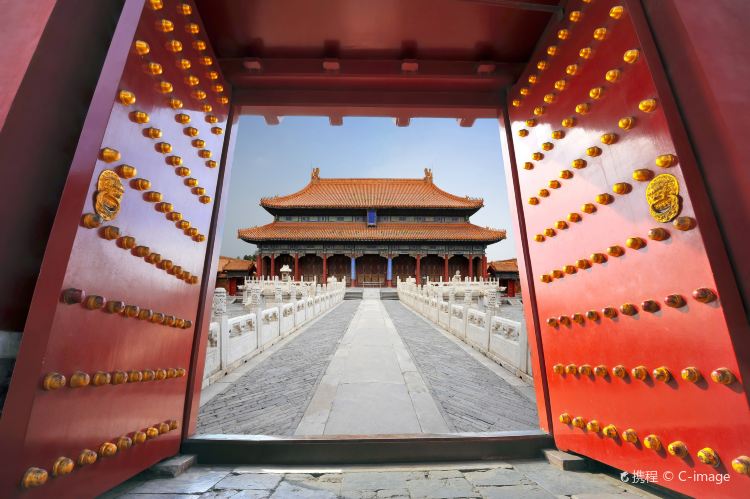
Forbidden City
The largest and best-preserved imperial palace complex in the world, home to 24 emperors of the Ming and Qing dynasties. This UNESCO World Heritage Site features over 8,000 rooms with traditional Chinese architecture, beautiful gardens, and priceless artifacts.
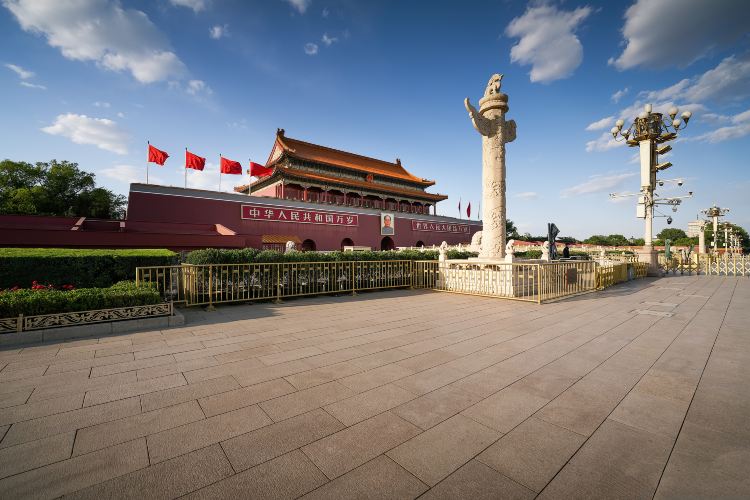
Tiananmen Square
The world's largest public square, symbolizing China's political and cultural heart. Surrounded by important landmarks including the Great Hall of the People, National Museum, and Chairman Mao Memorial Hall.
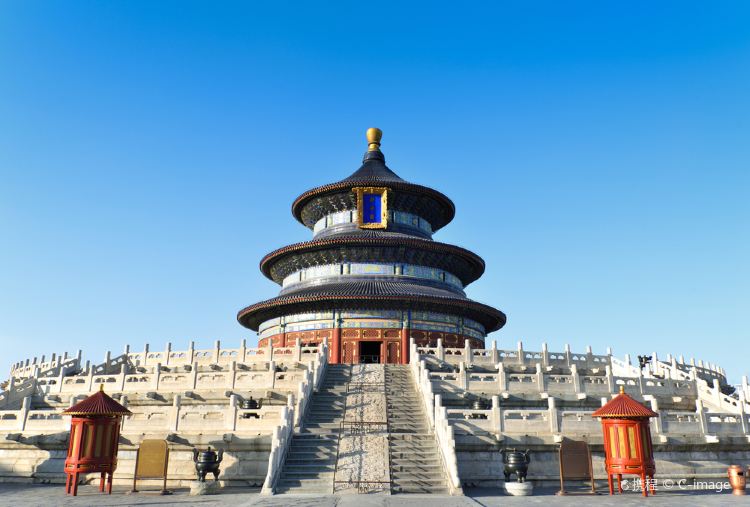
Temple of Heaven
A masterpiece of Chinese architecture where emperors performed annual ceremonies to pray for good harvests. The complex includes the iconic Hall of Prayer for Good Harvests, the Circular Mound Altar, and beautiful gardens.
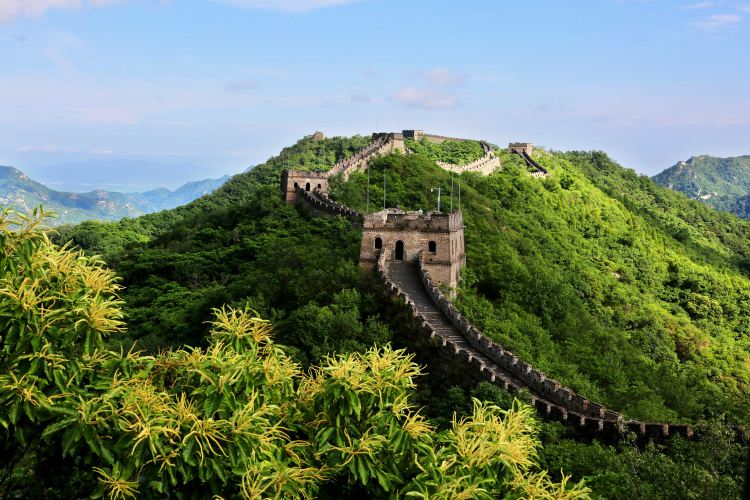
Great Wall at Mutianyu
One of the best-preserved sections of the Great Wall, featuring 22 watchtowers and stunning mountain views. Less crowded than Badaling, it offers cable car access and a toboggan ride down.
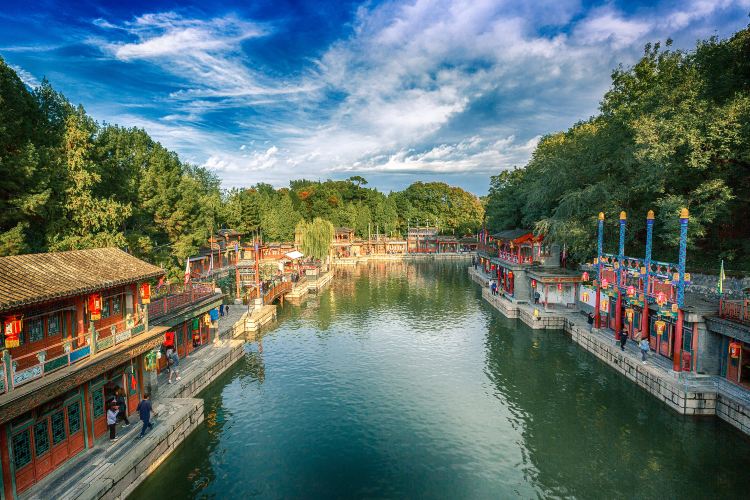
Summer Palace
The largest and most beautiful imperial garden in China, featuring Kunming Lake, Longevity Hill, and numerous pavilions and temples. A perfect example of Chinese landscape garden design.
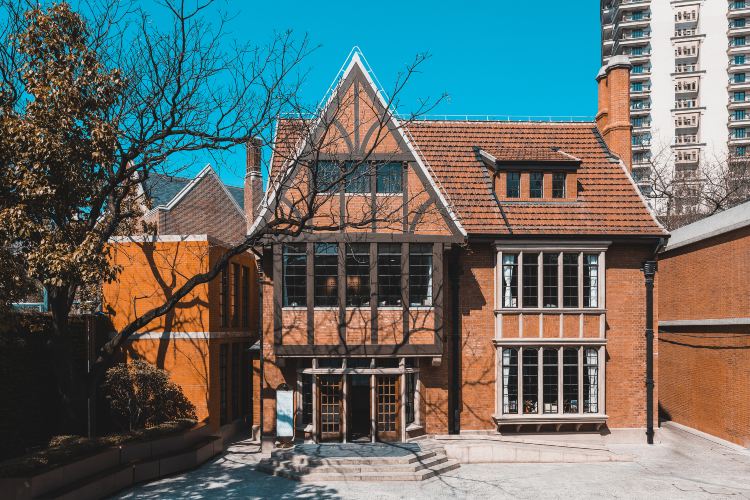
Hutong Tour
Explore Beijing's traditional alleyways and courtyard houses by rickshaw or on foot. Experience local life, visit a traditional courtyard home, and learn about Beijing's historical residential architecture.
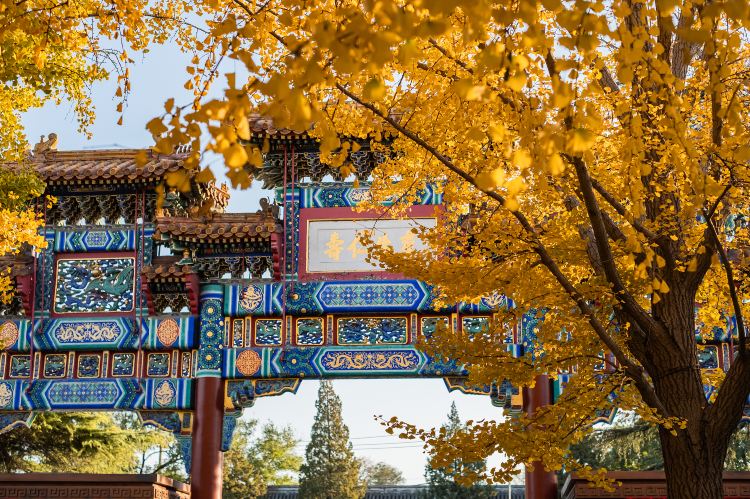
Lama Temple
The largest Tibetan Buddhist temple outside Tibet, featuring magnificent architecture, giant Buddha statues, and a peaceful atmosphere. The temple complex includes five main halls and beautiful gardens.
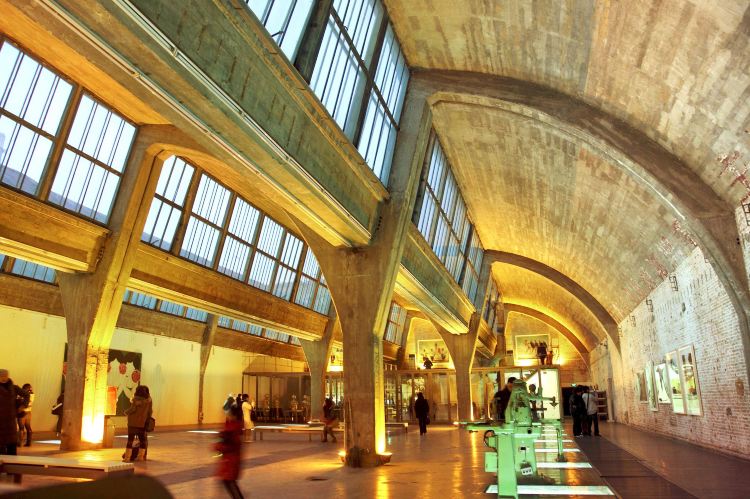
798 Art District
A contemporary art district converted from an old factory complex. Features galleries, studios, cafes, and street art, showcasing Beijing's modern artistic scene and creative culture.
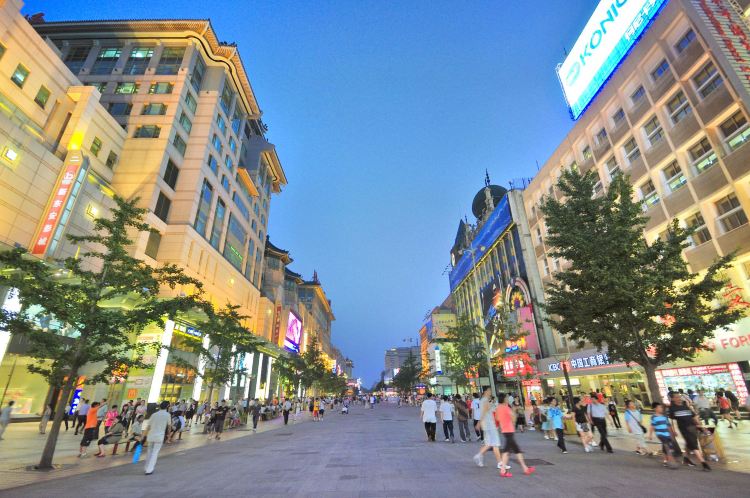
Wangfujing Street
Beijing's most famous shopping street, offering a mix of traditional markets, modern malls, and street food. Famous for its snack street where visitors can try various local delicacies.
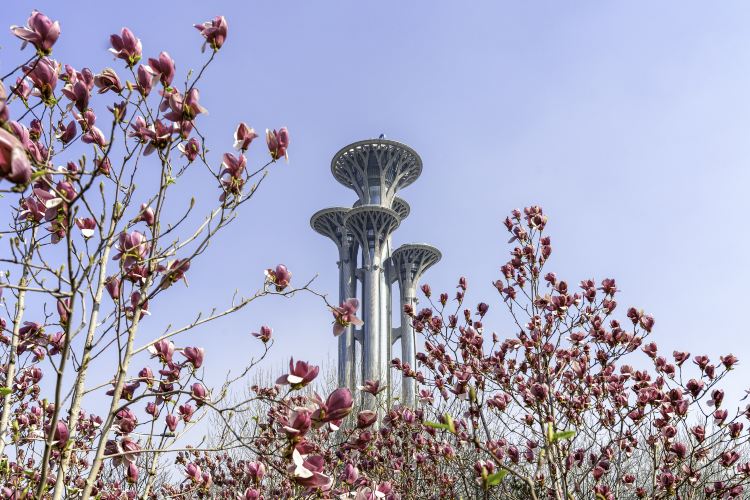
Olympic Park
Home to the 2008 Beijing Olympics, featuring the iconic Bird's Nest stadium and Water Cube. The park offers beautiful landscaping, fountains, and a chance to see modern Beijing's architectural achievements.
Local Specialty Foods
Peking Duck
Beijing's most famous dish, featuring crispy-skinned duck served with thin pancakes, spring onions, and hoisin sauce. The duck is traditionally roasted in a wood-fired oven.
Quanjude, Da Dong, Siji Minfu
Jiaozi (Dumplings)
Traditional Chinese dumplings filled with various ingredients like pork, vegetables, or seafood. Served boiled, steamed, or pan-fried.
Din Tai Fung, various local restaurants
Hot Pot
A communal dining experience where diners cook their own ingredients in a simmering pot of broth. Beijing-style hot pot typically features lamb and a clear broth.
Haidilao, Donglaishun
Zhajiangmian
Noodles topped with a thick sauce made from fermented soybean paste, ground pork, and vegetables. A classic Beijing street food.
Old Beijing Zhajiang Noodle King
Jianbing
A popular breakfast crepe made from mung bean flour, filled with egg, crispy wonton, and various sauces. Often sold from street vendors.
Street vendors throughout Beijing
Tanghulu
Candied hawthorn berries on a stick, a traditional Beijing snack. The sour berries are coated in a sweet sugar glaze.
Wangfujing Snack Street, various markets
Ludagunr
Traditional Beijing snacks made from glutinous rice flour, often filled with sweet bean paste or other fillings.
Traditional snack shops
Beijing Yogurt
A thick, tangy yogurt served in traditional ceramic jars. A refreshing drink that's been popular in Beijing for centuries.
Various restaurants and street vendors
Practical Tips
Best Time to Visit
Spring (March-May) and autumn (September-November) are the best seasons to visit Beijing, with pleasant weather and clear skies. Summer can be hot and humid, while winter is cold but less crowded.
Transportation
Beijing has an extensive and efficient metro system that connects most major attractions. Taxis are also affordable and convenient. For the Great Wall, consider joining a tour or hiring a private driver.
Accommodation
Stay in the Dongcheng or Xicheng districts for easy access to major attractions. The Wangfujing area offers good shopping and dining options, while the Sanlitun area is popular for nightlife.
Tickets and Reservations
Book tickets for the Forbidden City in advance online to avoid long queues. The Great Wall at Mutianyu is less crowded than Badaling and offers better photo opportunities.
Cultural Etiquette
Dress modestly when visiting temples and religious sites. Remove hats and sunglasses when entering sacred spaces. Be respectful of local customs and traditions.
Language
Learn a few basic Chinese phrases or carry a translation app. Most tourist areas have English signs, but knowing basic greetings and numbers is helpful.
Air Quality
Check air quality before planning outdoor activities. Consider wearing a mask on days with poor air quality, especially when visiting the Great Wall.
Conclusion
Three days in Beijing provides a comprehensive introduction to China's capital, offering a perfect balance of historical exploration, cultural immersion, and modern discovery. From the grandeur of the Forbidden City to the majesty of the Great Wall, from the tranquility of the Summer Palace to the energy of Wangfujing Street, Beijing reveals itself as a city of remarkable contrasts and endless fascination.
This itinerary showcases Beijing's ability to preserve its rich heritage while embracing contemporary culture and innovation. The city's unique character, shaped by its imperial past and modern aspirations, creates an unforgettable experience for visitors from around the world.
If you have more time, consider extending your stay to explore nearby attractions like the Ming Tombs, the Fragrant Hills, or the ancient city of Pingyao. Alternatively, spend extra days in Beijing itself, diving deeper into its food scene, traditional crafts, or modern developments.
Whether you're a history enthusiast, a culture seeker, a food lover, or simply curious about one of the world's most fascinating cities, Beijing will not disappoint. The city's combination of ancient wonders and modern marvels, traditional customs and contemporary culture, creates a travel experience that is both educational and entertaining, inspiring and unforgettable.
Itinerary Highlights Summary
- 1Walk through the magnificent Forbidden City, exploring the largest imperial palace complex in the world
- 2Hike along the Great Wall at Mutianyu, experiencing one of humanity's greatest architectural achievements
- 3Discover the beauty of the Summer Palace, China's most magnificent imperial garden
- 4Experience traditional Beijing life in the historic hutongs and courtyard homes
- 5Explore the contemporary art scene at 798 Art District and modern shopping at Wangfujing
- 6Savor authentic Beijing cuisine, from Peking duck to street food specialties